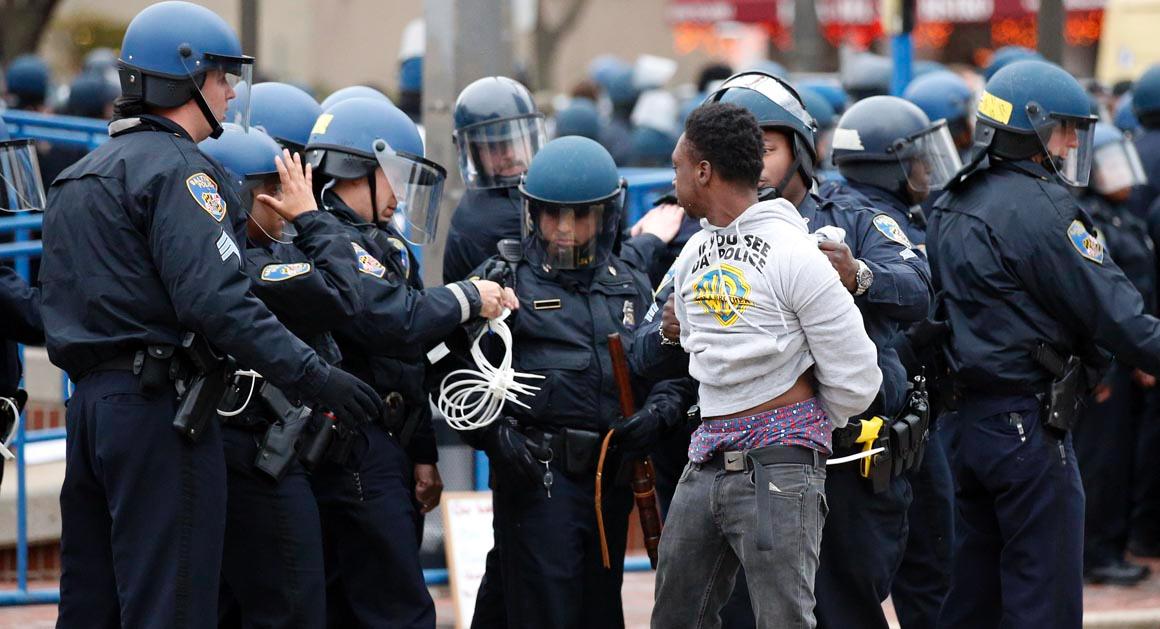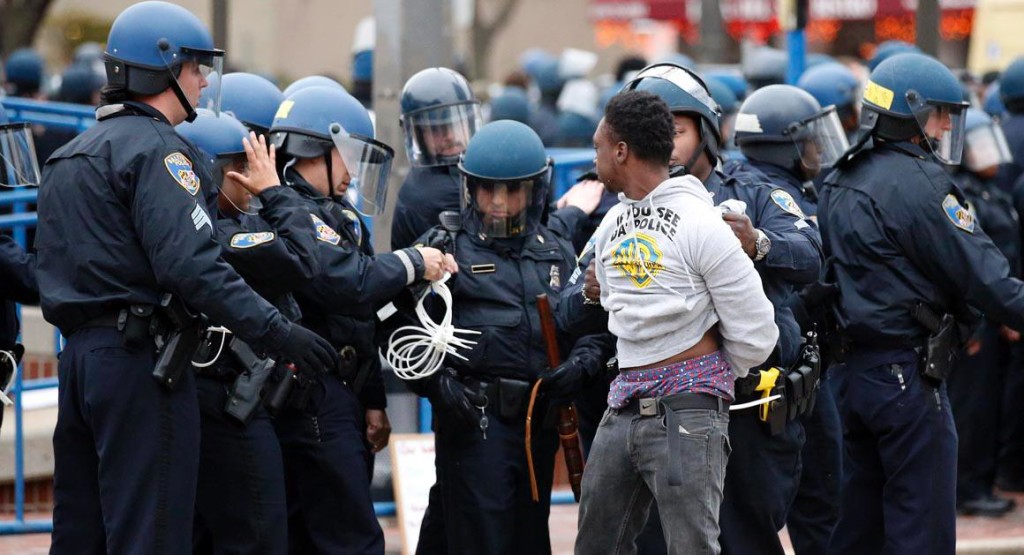
White House awakes to ‘national crisis’
For President Barack Obama and Congress, one thing was clear amid the smoke in Baltimore: A task force didn’t solve the problem.
There weren’t a lot of firm recommendations from the 11 people whom Obama appointed after last year’s uproar in Ferguson, Missouri, to give him an interim report on 21st Century Policing last month (No. 1 recommendation: “Law enforcement culture should embrace a guardian mindset to build public trust and legitimacy”). They skipped over body cameras. They skipped over racial bias training.
They did recommend the creation of another task force, this one called the National Crime and Justice Task Force.
Congress managed to do even less.
Since then, Walter Scott was shot five times in the back by a police officer in North Charleston, S.C., and Freddie Gray died from spinal injuries he didn’t have before he was taken into custody by the police in Baltimore, which burst into riots and looting Monday, right in the middle of the day.
With a dozen incidents in a year and a half, all around the country, the frustrations appear to transcend local conditions. And though local officials keep blaming round-the-clock cable news coverage for encouraging the violence, the speed and intensity of the protests in city after city make clear how much deeper than police misconduct these frustrations are — joblessness, hopelessness, racial double standards.
“It’s a state of emergency of tremendous proportions,” said Marc Morial, president of the National Urban League. “The response you’re having is not about the incidents. The response is about lack of faith in the political system to adequately respond to what we’re dealing with here.”
Obama and Congress are busy arguing over the Iran nuclear negotiations, a trade deal, what could become the broadest climate change agreement in history. But each city that erupts is a reminder of how little’s been done to address the hopelessness that’s hitting Americans in some communities across the country much more immediately.
“We’re in the throes of a national crisis,” said Sherrilyn Ifill, president and director-counsel of the NAACP Legal Defense Fund. “People are looking at our system of criminal justice and our system of law enforcement and they recognize that something is wrong.”
The president’s response has been constrained, both by the need to avoid prejudicing any federal legal action and because of a political environment that pins him between those who think he needs to say more on behalf of African-Americans and those who think anything he says about African-Americans shows his bias in their favor.
Last summer, when he said nearly nothing to satisfy the people chanting in the streets, he still had critics complaining he wasn’t doing enough to back up the police. On Monday, he called Baltimore Mayor Stephanie Rawlings-Blake to offer support, and his top adviser Valerie Jarrett spoke with Maryland Governor Larry Hogan. A few hours later, Rawlings-Blake instituted a week-long curfew and asked Hogan to send in the National Guard.
“This is fundamentally a local issue,” said White House press secretary Josh Earnest on Monday, adding that while the president’s policing task force made some important recommendations, “there does need to be a commitment from local elected leaders and local law enforcement leaders to confront this challenge and to demonstrate some determination about trying to build bridges with the citizens that they’re sworn to protect.”
Meanwhile, 15 police officers were injured. Two were still in the hospital Monday night. Stores in West Baltimore were looted and destroyed.
“I condemn the senseless acts of violence,” said Loretta Lynch, in the first statement she issued since being sworn in as attorney general Monday morning, right after leaving her post as the United States attorney in the New York district where Eric Garner was choked to death. The Staten Island district attorney failed to get a grand jury to indict the police officer involved.
Obama himself has backed the use of police body cameras, and his budget proposal provides $97 million to provide them, in addition to millions more for the Justice Department. The White House has also been pressing a meeting convened at the beginning of April on increasing data access as evidence of the follow through to the March 1 task force report.
After all, they’ve only had the task force’s recommendations for a few weeks, the White House says.
“Right now, agencies have been reviewing to see how they can actively support the report and implement the recommendations,” said a White House official. “In the interim, it is clear that there are some actions that can be taken in the near term — and that’s what the Police Data Initiative was an example of.”
Federal action has its limits. With few exceptions, police are under state or local authority, and even a much more active Obama and Congress could only force some reforms. But advocates say that the impact of legislation increasing police accountability alone would be significant.
People “understand that they will be held responsible for looting, but there’s a tacit understanding that when law enforcement assaults or kills somebody, they will not be,” Ifill said.
Changing that requires moving beyond task forces and conversations that only come up every time another black man’s killed and the national media runs to another city to for a few days of coverage on the ground, Ifill said. Obama needs to address the problem, she said, Congress needs to address it, and everyone running for president needs to do so, as well.
“This is not something that can be put to the side and ghettoized,” she said.
Monday night in Baltimore, Police Commissioner Anthony Batts was looking out at his burning city and raising the specter of Watts.
“I don’t know if it’s going to get worse,” Batts admitted, as he tried to end his late night press conference.
Obama will have a press conference Tuesday with Japanese Prime Minister Shinzo Abe. He’ll have the White House press corps and national cameras focused on him to hear him if he chooses to say more about what’s going on in Baltimore and around the country.
“Look at the attention the Iran nuclear issue is getting from Congress, and from the beltway media. There’s a sense that this is isolated and it’ll blow over,” Morial said. “This is a problem of national proportions and national dimensions.”
“It’s Baltimore today,” Morial said. “Who will be next?”
(From: Politico)


